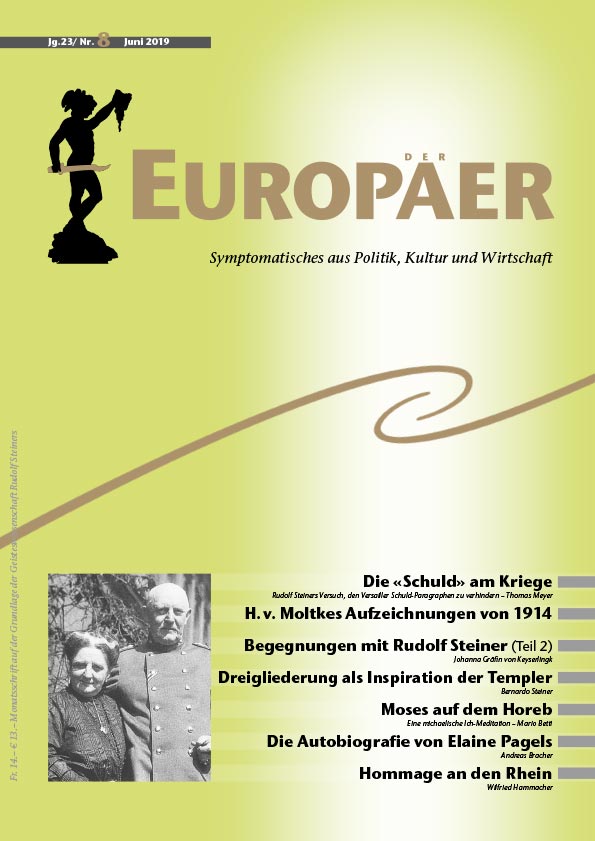Europäer Juni 2019 (Jg 23 / Nr. 8)
Editorial: «Der Übergang vom Guten zum Bösen» Klarstellung der Tatsachen Weltgeschichtliche Ereignisse 1919 Thomas Meyer Betrachtungen und Erinnerungen Helmuth von Moltke Lehrgespräche mit Rudolf Steiner (Teil 2) Johanna Gräfin von Keyserlingk…

